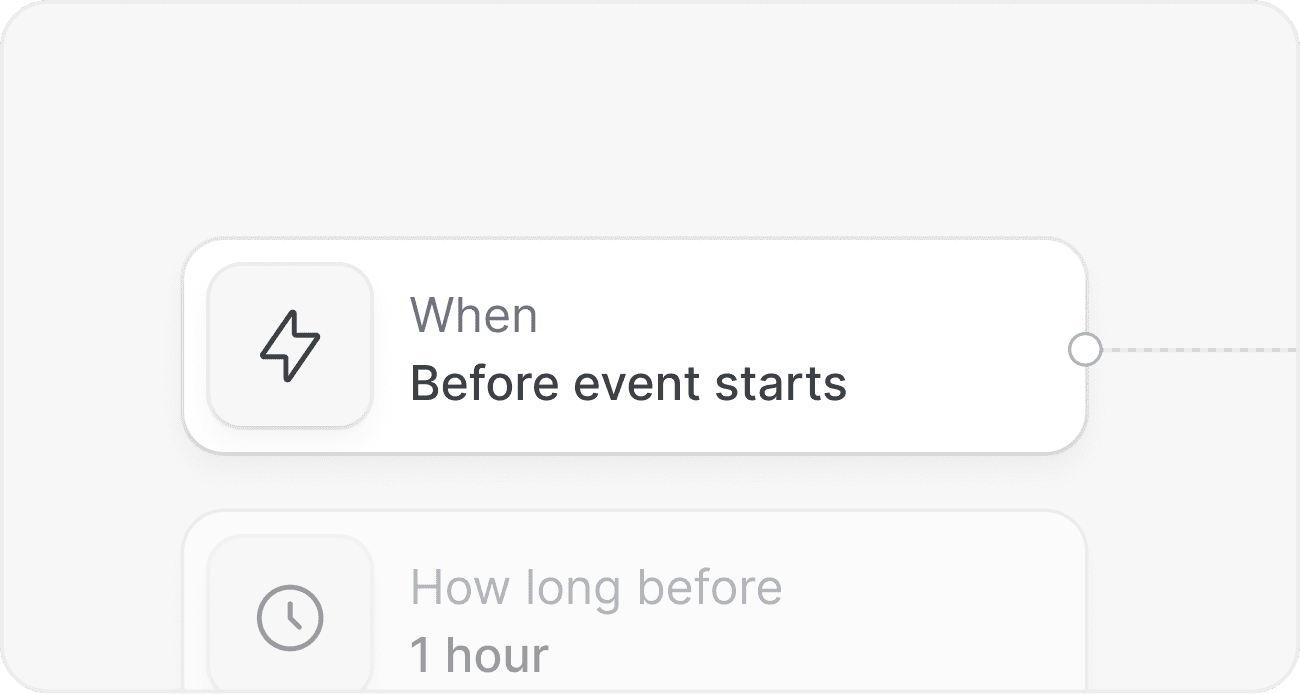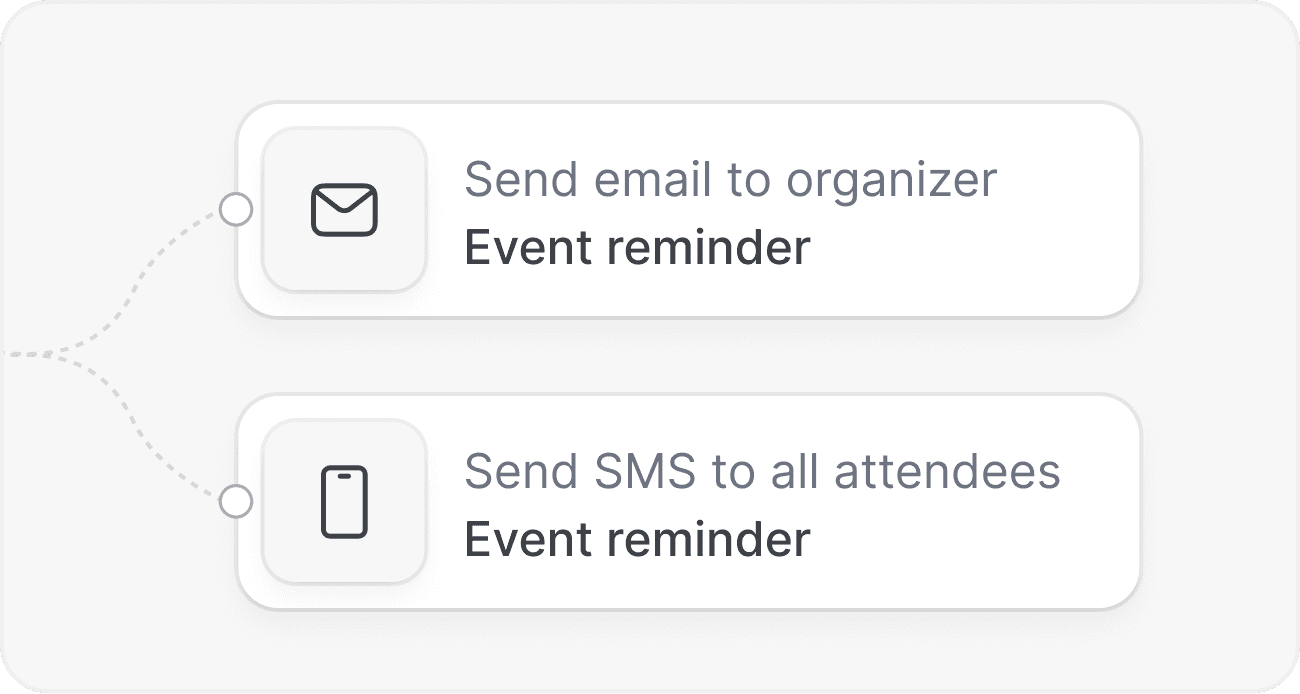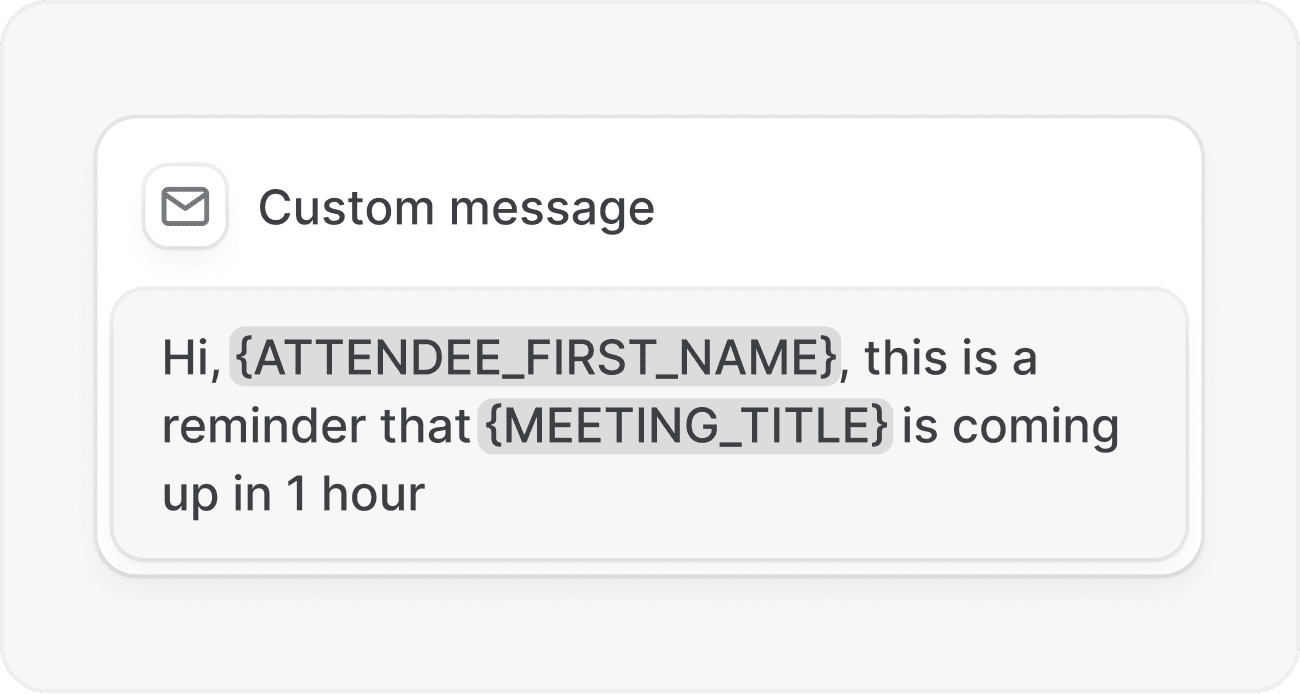
01
Configure intake and conflict screening
Collect availability and party details, auto-run conflict screens, and route cases by practice area or venue. Sync calendars to prevent double booking and enforce buffer times for preparation.

02
Automate notifications and document prep
Send branded emails, SMS, or WhatsApp reminders, share pre-session forms, and deliver secure links. Trigger follow-ups for agreements, invoices, and feedback after mediation or arbitration.

03
Coordinate sessions and multi-party logistics
Offer group or breakout slots, handle different time zones, and hold times with payment or approval. Auto-generate video rooms or room labels for hearings, caucuses, and joint sessions.


01
Faster client intake with fewer back-and-forths
Make it easy for clients and counsel to book the right neutral at the right time. Smart routing and rules streamline the family mediation process, commercial matters, and workplace disputes. Whether clients search divorce mediation near me or corporate solutions, your intake captures the essentials, runs conflict checks, and offers secure times instantly. Custom questions, file uploads, and time buffers ensure you are prepared before the first session. Fewer emails, fewer phone calls, and a more professional first impression.
02
Lower no-shows and cancellations
Automated reminders by email, SMS, and WhatsApp reduce no-shows across mediation services, workplace dispute mediation, and arbitration. Set reminders by role, language, or time zone, and include preparation steps, parking details, or video links. If a party reschedules, all stakeholders are updated automatically. Post-session follow-ups collect agreements, settlement summaries, or feedback without manual effort. Your calendar stays accurate, and clients arrive prepared.


03
Operational control and compliance
Maintain privacy-first scheduling with fine-grained controls, audit-ready logs, and data residency options. Cal.com supports self-hosting for sensitive cases, SSO for firm-grade access, and permissioning for panel administrators. Configure approvals for high-stakes matters, hold times until payment clears, and enforce multi-calendar conflict checks. Keep historical scheduling and communications aligned with practice rules and ethical guidelines.
04
Built for profitability and scale
Increase utilization without sacrificing quality. Set rate-based event types, add deposits for arbitrations, and track lead sources. Route cases to the most appropriate neutral, allocate rooms or virtual links automatically, and standardize tasks with workflows. For commercial arbitration services and large panels, API-based automation keeps operations consistent across mediators, case administrators, and finance. Scale your practice while protecting margins.

Conflict-aware routing
Route new matters by practice area, location, role, or conflict flags. Use intake answers to determine eligibility, assign the right neutral, and prevent double booking across personal and shared calendars.
Multi-party scheduling
Invite clients, counsel, and observers with role-based notifications. Support joint sessions, private caucuses, and follow-ups in one flow. Handle time zones, breakout rooms, and group availability cleanly.
Automated reminders and follow-ups
Send branded reminders with preparation steps, payment links, or Zoom details. Trigger post-session tasks for agreements, invoices, or feedback. Reduce no-shows and keep all parties aligned.
Payment, deposits, and holds
Collect fees or retainers before confirming hearings. Place soft holds that auto-expire, or require approval for premium blocks. Sync with accounting tools through webhooks.
Self-hosting and SSO
Deploy Cal.com on your own infrastructure for sensitive matters. Enable SSO and granular permissions to meet firm policies and regional compliance requirements.
Developer-ready API and webhooks
Automate intake, routing, and notifications programmatically. Connect case management, billing, and CRM systems with robust API endpoints and real-time webhooks.
Get started with Cal.com for mediators and arbitrators
Try Cal.com free, or request a live demo tailored to your caseload. Explore open-source flexibility, API-first workflows, and self-hosting options. Build intake, routing, reminders, and payments that fit your practice, then scale confidently.

















